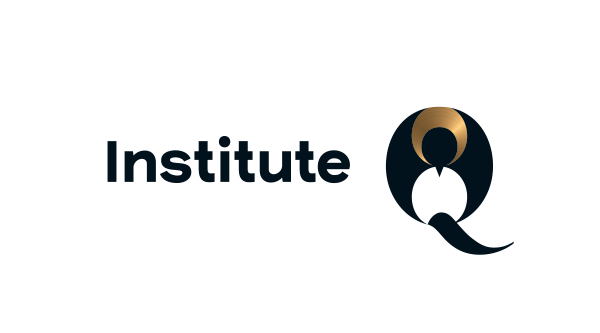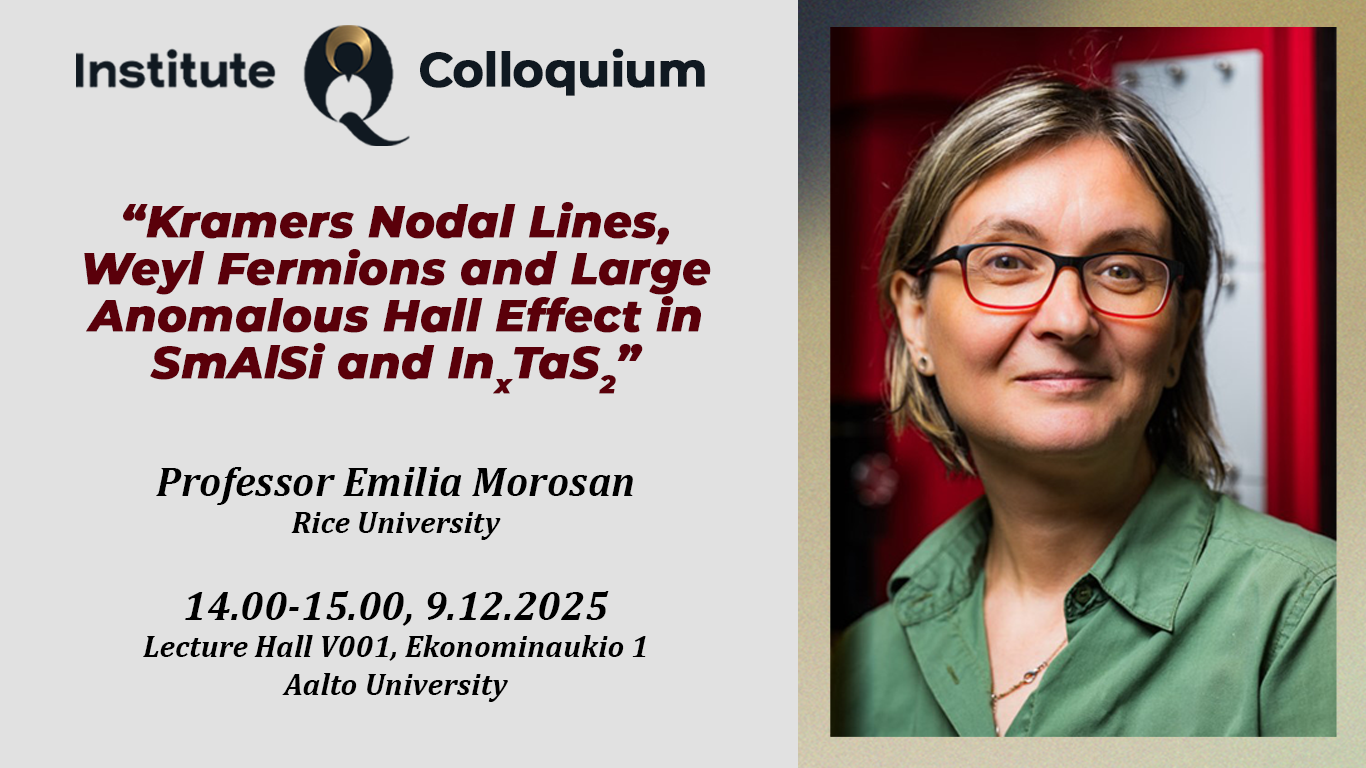This InstituteQ Colloquium features Professor Emilia Morosan of Rice University. The title of her talk is “Kramers Nodal Lines, Weyl Fermions and Large Anomalous Hall Effect in SmAlSi and InxTaS2.”
Emilia Morosan is the William M. Rice Trustee Professor of Physics and Astronomy and the Director of Rice Center for Quantum Materials (RCQM) at Rice University. She completed her doctoral studies in Physics at Iowa State University and Ames Lab and subsequently was a postdoc in Chemistry at Princeton University. Since 2007, she has been a professor of Physics and Astronomy, with joint appointments in Chemistry, and Electrical and Computer Engineering at Rice University. Prof. Morosan is a condensed matter experimentalist whose research straddles the boundaries between physics, chemistry and materials science. Her primary research interests are the design and synthesis of novel materials, crystal growth, and studies of topological correlated electron systems, unconventional superconductivity, local and itinerant moment magnetism, heavy fermions systems, quantum criticality. Prof Morosan and her group are using different crystal growth techniques to design, discover and grow single crystals of novel materials, often predicted theoretically to show non-trivial topological states from Weyl semimetals to Krames-Weyl fermions and multidegenerate fermions, unconventional superconductors. Her most recent work uses AI guided materials design and discovery to find new practical superconductors and hard ferromagnets. For her work, prof. Morosan has been recognized with numerous awards and honors, including the DOD 2024 Vannevar Bush Faculty Fellowship, Humboldt Fellowship for Advanced Researchers, Gordon and Betty Moore Foundation EPiQS synthesis investigator, Presidential Early Career Award for Scientists and Engineers (PECASE), NSF CAREER award. She is a fellow of the American Physical Society, and has served as a APS DMP member at large.
Event details
When: 14:00-15:00, 9.12.2025
Where: Lecture Hall V001, Ekonominaukio 1, 02150 Espoo & online
Register: Webropol link to register
Host: Aalto University Physics Professor Päivi Törmä
Refreshments are served at 13:45 before the talk. This talk will also be livestreamed and recorded. For remote attendees, the Zoom link can be found in the calendar invitation received upon registration.
From Emilia Morosan: What will your talk discuss?
Kramers nodal lines (KNLs) are a special type of Weyl line degeneracies that connect time reversal invariant momenta (TRIM). KNLs are robust to spin orbit coupling (SOC), and are inherent to all non-centrosymmetric achiral crystal structures. In this talk, I will present magneto-transport and ARPES experimental data together with DFT calculations, pointing to the existence of novel KNLs in SmAlSi. SmAlSi develops an incommensurate spin density wave order at low temperatures. I will show evidence for the symmetry-protected KNLs, as well as Weyl fermions under the broken inversion symmetry in the paramagnetic phase of SmAlSi. In the AFM state, angle-dependent quantum oscillations (AQOs) provide evidence for the Weyl points, while large AHE is observed in both the AFM and the PM states. We propose a new mechanism to explain AHE in non-FM materials, based on magnetic field-induced Weyl-nodes evolution in non-centrosymmetric Weyl semimetals. I will then contrast the properties of SmAlSi with those of the intercalated transition metal dichalcogenides InxTaS2 (ITS). The ITS compounds showcase the cleanest FS with a single KNL crossing the Fermi level, and also feature superconducting ground states below Tc between 0.6 K and 2.5 K (when x = 1/2, 2/3 or 1). Our AQOs and ARPES data on InTaS2 point to the existence of pinch points enforced by KNL, reminiscent of 2D massless Dirac fermions on the surface of 3D topological insulators. So when the pinch points with (2n+1)p (n = integer) Berry curvature are gapped by superconductivity, they are expected to produce nontrivial vortex spectra hosting chiral Majorana zero modes.



